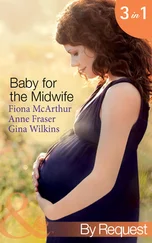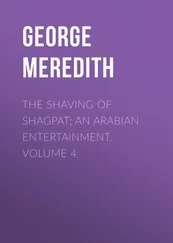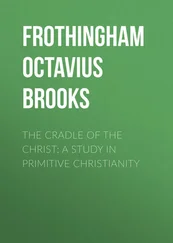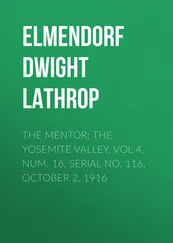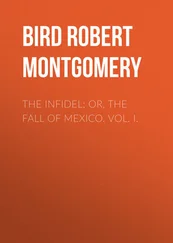Anne Blunt - A Pilgrimage to Nejd, the Cradle of the Arab Race. Vol. 1 [of 2]
Здесь есть возможность читать онлайн «Anne Blunt - A Pilgrimage to Nejd, the Cradle of the Arab Race. Vol. 1 [of 2]» — ознакомительный отрывок электронной книги совершенно бесплатно, а после прочтения отрывка купить полную версию. В некоторых случаях можно слушать аудио, скачать через торрент в формате fb2 и присутствует краткое содержание. Жанр: foreign_antique, foreign_prose, Путешествия и география, на английском языке. Описание произведения, (предисловие) а так же отзывы посетителей доступны на портале библиотеки ЛибКат.
- Название:A Pilgrimage to Nejd, the Cradle of the Arab Race. Vol. 1 [of 2]
- Автор:
- Жанр:
- Год:неизвестен
- ISBN:нет данных
- Рейтинг книги:4 / 5. Голосов: 1
-
Избранное:Добавить в избранное
- Отзывы:
-
Ваша оценка:
- 80
- 1
- 2
- 3
- 4
- 5
A Pilgrimage to Nejd, the Cradle of the Arab Race. Vol. 1 [of 2]: краткое содержание, описание и аннотация
Предлагаем к чтению аннотацию, описание, краткое содержание или предисловие (зависит от того, что написал сам автор книги «A Pilgrimage to Nejd, the Cradle of the Arab Race. Vol. 1 [of 2]»). Если вы не нашли необходимую информацию о книге — напишите в комментариях, мы постараемся отыскать её.
A Pilgrimage to Nejd, the Cradle of the Arab Race. Vol. 1 [of 2] — читать онлайн ознакомительный отрывок
Ниже представлен текст книги, разбитый по страницам. Система сохранения места последней прочитанной страницы, позволяет с удобством читать онлайн бесплатно книгу «A Pilgrimage to Nejd, the Cradle of the Arab Race. Vol. 1 [of 2]», без необходимости каждый раз заново искать на чём Вы остановились. Поставьте закладку, и сможете в любой момент перейти на страницу, на которой закончили чтение.
Интервал:
Закладка:
Next in importance to the camels are the horses we are to ride. Mohammed has got his little Jilfeh mokhra of last year which is barely three years old, but he declares she is up to his weight, thirteen stone, and I suppose he knows best. Mr. S. has sent us two mares from Aleppo by Hanna, one, a Ras el Fedawi, very handsome and powerful, the other, a bay three year old Abeyeh Sherrak, without pretension to good looks, but which ought to be fast and able to carry a light weight. We rode to the Maidan, and the chestnut’s good looks attracted general attention. Everybody turned round to look at her; she is perhaps too handsome for a journey.
December 7. – We have been spending the day with Mrs. Digby and her husband, Mijuel of the Mizrab, a very well bred and agreeable man, who has given us a great deal of valuable advice about our journey. They possess a charming house outside the town, surrounded by trees and gardens, and standing in its own garden with narrow streams of running water and paths with borders full of old fashioned English flowers – wall-flowers especially. There are birds and beasts too; pigeons and turtle doves flutter about among the trees, and a pelican sits by the fountain in the middle of the courtyard guarded by a fierce watch-dog. A handsome mare stands in the stable, but only one, for more are not required in town.
The main body of the house is quite simple in its bare Arab furnishing, but a separate building in the garden is fitted up like an English drawing-room with chairs, sofas, books, and pictures. Among many interesting and beautiful sketches kept in a portfolio, I saw some really fine water-colour views of Palmyra done by Mrs. Digby many years ago when that town was less known than it is at present.
The Sheykh, as he is commonly called, though incorrectly, for his elder brother Mohammed is reigning Sheykh of the Mizrab, came in while we were talking, and our conversation then turned naturally upon desert matters, which evidently occupy most of his thoughts, and are of course to us of all-important interest at this moment. He gave us among other pieces of information an account of his own tribe, the Mizrab, to which in our published enumeration of tribes we scarcely did justice.
But before repeating some of the particulars we learned from him, I cannot forbear saying a few words about Mijuel himself, which will justify the value we attach to information received from him as from a person entitled by birth and position to speak with authority. In appearance he shews all the characteristics of good Bedouin blood. He is short and slight in stature, with exceedingly small hands and feet, a dark olive complexion, beard originally black, but now turning grey, and dark eyes and eyebrows. It is a mistake to suppose that true Arabs are ever fair or red-haired. Men may occasionally be seen in the desert of comparatively fair complexion, but these always (as far as my experience goes) have features of a correspondingly foreign type, showing a mixture of race. No Bedouin of true blood was ever seen with hair or eyes not black, nor perhaps with a nose not aquiline.
Mijuel’s father, a rare exception among the Ánazeh, could both read and write, and gave his sons, when they were boys, a learned man to teach them their letters. But out of nine brothers, Mijuel alone took any pains to learn. The strange accident of his marriage with an English lady has withdrawn him for months at a time, but not estranged him, from the desert; and he has adopted little of the townsman in his dress, and nothing of the European. He goes, it is true, to the neighbouring mosque, and recites the Mussulman prayers daily; but with this exception, he is undistinguishable from the Ibn Shaalans and Ibn Mershids of the Hamád. It is also easy to see that his heart remains in the desert, his love for which is fully shared by the lady he has married; so that when he succeeds to the Sheykhat, as he probably will, for his brother appears to be considerably his senior, I think they will hardly care to spend much of their time at Damascus. They will, however, no doubt, be influenced by the course of tribal politics, with which I understand Mijuel is so much disgusted, that he might resign in favour of his son Afet; in that case, they might continue, as now, living partly at Damascus, partly at Homs, partly in tents, and always a providence to their tribe, whom they supply with all the necessaries of Bedouin life, and guns, revolvers, and ammunition besides. The Mizrab, therefore, although numbering barely a hundred tents, are always well mounted and better armed than any of their fellows, and can hold their own in all the warlike adventures of the Sebaa.
According to Mijuel, the Mizrab, instead of being, as we had been told, a mere section of the Resallin, are in fact the original stock, from which not only the Resallin but the Moáhib and the Gomussa themselves have branched off. In regard to the last-mentioned tribe he related the following curious story: —
An Arab of the Mizrab married a young girl of the Suellmat tribe and soon afterwards died. In a few weeks his widow married again, taking her new husband from among her own kinsmen. Before the birth of her first child a dispute arose as to its parentage, she affirming her Mizrab husband to be the father while the Suellmat claimed the child. The matter, as all such matters are in the desert, was referred to arbitration, and the mother’s assertion was put to the test by a live coal being placed upon her tongue. In spite of this ordeal she persisted in her statement, and got a judgment in her favour. Her son, however, is supposed to have been dissatisfied with the decision, for as soon as born he turned angrily on his mother, from which circumstance he received the name of Gomussa or the “scratcher.” From him the Gomussa tribe are descended. They first came into notice about seventy years ago when they attacked and plundered the Bagdad caravan which happened to be conveying a large sum of money. With these sudden riches they acquired such importance that they have since become the leading section of the tribe, and they are now undoubtedly the possessors of the best mares among the Ánazeh. The Mizrab Sheykhs nevertheless still assert superiority in point of birth, and a vestige of their old claims still exists in their titular right to the tribute of Palmyra.
Mijuel’s son, Afet, or Japhet, whom we met at Beteyen’s camp last spring, has taken, it would appear, an active part in the late fighting. During the battle where Sotamm was defeated by the Sebaa and their allies, the head of the Ibn Jendal 3 3 One of the noblest of the Roala families.
family, pursued by some Welled Ali horsemen, yielded himself up a prisoner to Afet whose father-in-law he was, and who sought to give him protection by covering him with his cloak. But the Ibn Smeyr were at blood feud with the Ibn Jendals, and in such cases no asylum is sacred. One of Mohammed Dukhi’s sons dragged Ibn Jendal out of his hiding-place and slew him before Afet’s eyes. On that day the Sebaa took most of the mares and camels they had lost in the previous fighting, and our friend Ferhan Ibn Hedeb is now in tolerable comfort again with tents and tent furniture, and coffee-pots to his heart’s content. I hope he will bear his good fortune as well as he bore the bad.
Mijuel can of course give us better advice than anybody else in Damascus, and he says that we cannot do better in the interests of our journey than go first to Jerúd and consult Mohammed Dukhi. The Welled Ali after the Roala are the tribe which knows the western side of the desert best, and we should be sure of getting correct information from them, if nothing more. The Sebaa never go anywhere near the Wady Sirhán, as they keep almost entirely to the eastern half of the Hamád; and even their ghazús hardly ever meddle with that inhospitable region. Mijuel has once been as far south as to the edge of the Nefûd, which he describes as being covered with grass in the spring. The Wady Sirhán, he believes, has wells, but no pasturage.
Читать дальшеИнтервал:
Закладка:
Похожие книги на «A Pilgrimage to Nejd, the Cradle of the Arab Race. Vol. 1 [of 2]»
Представляем Вашему вниманию похожие книги на «A Pilgrimage to Nejd, the Cradle of the Arab Race. Vol. 1 [of 2]» списком для выбора. Мы отобрали схожую по названию и смыслу литературу в надежде предоставить читателям больше вариантов отыскать новые, интересные, ещё непрочитанные произведения.
Обсуждение, отзывы о книге «A Pilgrimage to Nejd, the Cradle of the Arab Race. Vol. 1 [of 2]» и просто собственные мнения читателей. Оставьте ваши комментарии, напишите, что Вы думаете о произведении, его смысле или главных героях. Укажите что конкретно понравилось, а что нет, и почему Вы так считаете.
![Anne Blunt A Pilgrimage to Nejd, the Cradle of the Arab Race. Vol. 1 [of 2] обложка книги](/books/749489/anne-blunt-a-pilgrimage-to-nejd-the-cradle-of-the-cover.webp)
